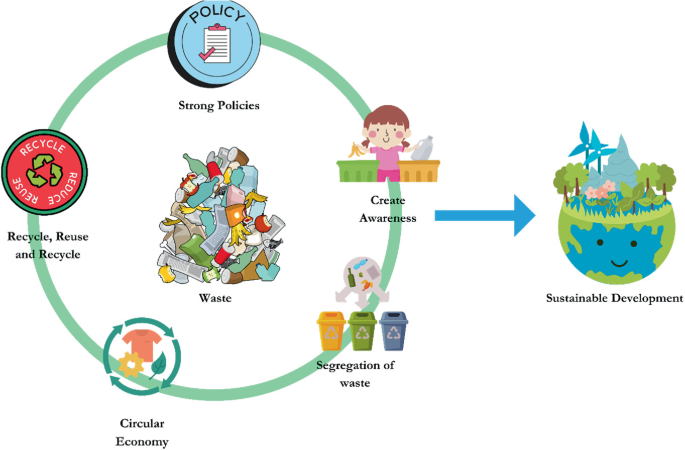Reclaim Waste for Beginners
Reclaim Waste for Beginners
Blog Article
Facts About Reclaim Waste Uncovered
Table of Contents4 Simple Techniques For Reclaim Waste3 Simple Techniques For Reclaim WasteLittle Known Facts About Reclaim Waste.6 Easy Facts About Reclaim Waste DescribedReclaim Waste - Questions
Explore the types, occurrences, and forms of liquid waste. Residential sewage waste describes the waste and products from a domestic septic container. This kind of waste is developed by human beings in homes, colleges, and various other buildings. This only includes sewage-disposal tanks that have a drain area. The correct administration and disposal of residential sewer waste require fluid waste to be transferred to a sewer therapy plant where the correct techniques and tools are put on cleanse and take care of waste.
Commercial waste frequently consists of prospective threats, such as combustible products or a mix of liquid and strong waste items, and calls for an advanced and detailed disposal process. The disposal of industrial waste typically entails the filtration of waste prior to transport to make sure safe and correct disposal. Hazardous waste is produced from byproducts and drainage of commercial procedures and production.
This kind of waste can not utilize the exact same sewage administration transport or procedures as septic or business liquids. The commercial waste administration procedure requires the evaluation and testing of liquid waste before it undergoes the disposal process (industrial wastewater treatment). Overflow waste is the fluid waste that comes from drainage and excess stormwater in highly booming locations or cities
Drainage waste can trigger contamination and flooding if not taken care of appropriately. Find out more about drain cleaning and waste management. Making certain correct waste administration can protect against calamities and reduce environmental injury. Both people in property settings and experts in business or manufacturing industries can benefit from recognizing the processes and guidelines of fluid waste administration.
Reclaim Waste for Beginners
Get in touch with PROS Providers today to find out about our waste monitoring and disposal services and the appropriate methods to look after the liquid waste you generate.
(https://www.twitch.tv/reclaimwaste1/about)Do you know what occurs to your water when you pull the plug, purge the commode or drain the cleaning device? No? Well, it's worth knowing. This so-called 'wastewater' is not only an essential source yet, after therapy, will certainly be released to our land, waterways or the ocean. Utilized water from toilets, showers, baths, cooking area sinks, laundries and commercial processes is called wastewater.

water made use of to cool down machinery or clean plant and tools). Stormwater, a form of wastewater, is overflow that flows from agricultural and metropolitan areas such as roofings, parks, yards, roadways, paths and rain gutters into stormwater drains pipes, after rainfall. Stormwater flows neglected straight to local creeks or rivers, ultimately getting to the sea.
The 9-Minute Rule for Reclaim Waste
In Queensland, most wastewater is treated at sewage therapy plants. Wastewater is transferred from residential or industrial websites with a system of drains i was reading this and pump stations, called sewage reticulation, to a sewer treatment plant. City governments construct, maintain and operate most sewer therapy plants. Operators are licensed under the Environmental Management Act 1994 to discharge cured wastewater at an appropriate environmental standard right into rivers.
The Department of Natural Resources advises city governments regarding managing, operating and preserving sewerage systems and treatment plants. In unsewered locations, city governments might call for householders to set up specific or home sewage treatment systems to treat domestic wastewater from toilets, kitchen areas, bathrooms and laundries. The Department of Natural Resources authorizes the use of house systems when they are confirmed to be efficient.
The majority of stormwater obtains no treatment. In some new neighborhoods, treatment of some stormwater to remove trash, sand and crushed rock has started using gross contaminant traps. Wastewater therapy occurs in 4 stages: Removes strong issue. Larger solids, such as plastics and other items wrongly discharged to sewers, are gotten rid of when wastewater is gone through screens.
Uses tiny living organisms knows as micro-organisms to damage down and remove continuing to be dissolved wastes and great fragments. Micro-organisms and wastes are integrated in the sludge.
The 8-Second Trick For Reclaim Waste
Nutrient removal is not readily available at all sewer therapy plants since it calls for costly specialist devices. Clear fluid effluent produced after treatment might still contain disease-causing micro-organisms - liquid waste disposal melbourne.

This usually means wastewater needs to be dealt with or contaminants removed before it can be discharged to waterways. The majority of wastewater moves into the sewerage system. Under the Act, city governments administer approvals and permits for ecologically relevant activities (Ages) involving wastewater launches that may have a neighborhood influence. The division carries out approvals and permits to ERAs including wastewater launches that may have a local or statewide influence.
Facts About Reclaim Waste Uncovered
Or else, samples are considered lab analysis. Frequently several examinations are required to develop the degrees of each of the different pollutants such as oils, hefty steels and chemicals in water. Monitoring gives valid information regarding water high quality and can confirm that licence conditions are being fulfilled. The details acquired through monitoring provides the basis for making water top quality decisions.
Report this page